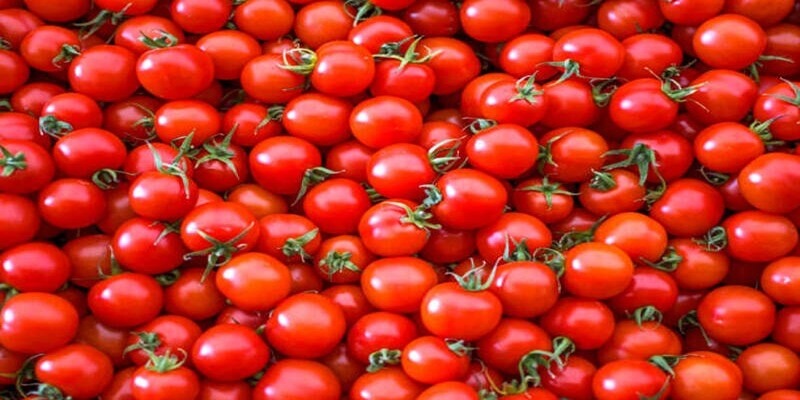Steering Clear: Foods and Drinks to Avoid When You Have Arthritis
Oct 08, 2023 By Nancy Miller
Your arthritis pain and symptoms can be affected by your diet. Diet affects inflammation, which causes arthritis.
Many tasty foods should be avoided, but simple diet changes can help. Choose whole wheat bread over white bread and olive oil over corn oil. Anti-inflammatory foods include leafy greens and colored vegetables.
The best way to find inflammatory foods is with an elimination diet. Start with baseline foods, which rarely cause inflammation. Quinoa, sweet potatoes, and leafy greens are baseline foods. After a few weeks, foods are added gradually. This simplifies identifying arthritis-causing foods.
Understanding Arthritis
Arthritis is a term for joint pain or condition with over 100 types. The most common forms are osteoarthritis (OA), rheumatoid arthritis (RA), psoriatic arthritis (PsA), and gout, which vary in inflammation and require different treatments.
The Importance of Diet in Managing Arthritis
A proper diet is essential for arthritis management. Foods that cause inflammation can increase pain. Avoiding these foods can significantly reduce arthritis symptoms, so knowing which ones to avoid is crucial.
Foods to Avoid with Arthritis
Arthritis can be a real pain, literally and figuratively speaking. What you choose to put on your plate makes a difference. Let’s explore the foods to avoid with arthritis and why they make the list of worst foods for arthritis.
Added Sugars
Sugar, while sweet, is not so sweet for those with arthritis. Cutting down on those candies and cakes can bring about a change. Research indicates that foods high in added sugars, such as pastries and sodas, trigger the release of inflammatory messengers called cytokines. This inflammation can aggravate arthritis, making added sugars some of the worst food for arthritis.
In an American study, inflammation and oxidative stress increased in rats fed high-sugar diets. This study suggests that added sugars may worsen arthritis symptoms in humans.
So, what’s the advice here? Consider replacing sugary treats with fruits and other natural sweeteners. Read labels carefully and look for hidden sugars in processed foods. In doing so, you actively choose foods to avoid arthritis and manage your symptoms more effectively.
Processed and Red Meats
We often hear about the drawbacks of processed and red meats. For people living with arthritis, these drawbacks are significant. Several studies have demonstrated a link between consuming processed and red meats and increased inflammation, which is an essential concern for individuals with arthritis.
A study published in the American Journal of Clinical Nutrition found that women who regularly consumed red meat had a higher risk of developing rheumatoid arthritis. The inflammation associated with this diet can intensify arthritis symptoms, making processed and red meat foods to avoid arthritis.
Balancing your diet with plant-based foods and less red meat can improve arthritis symptoms. Plus, opting for lean proteins like fish and poultry can make a significant difference in managing arthritis effectively.
Gluten-containing Foods
Gluten and arthritis? Yes, there’s a connection; for those sensitive to gluten, especially individuals with celiac disease, consuming gluten can trigger increased inflammation, potentially worsening arthritis symptoms.
Research shows that celiac disease increases the risk of rheumatoid arthritis. Thus, for such individuals, foods containing gluten are indeed foods to avoid with arthritis.
The effects are unclear for non-gluten-sensitive people, but gluten-free options may be beneficial. Healthy alternatives like quinoa and brown rice can help arthritis symptoms.
Highly Processed Foods

Think twice if you have arthritis. Ultra-processed foods with refined grains added sugars, and preservatives increase inflammation and obesity, which worsen arthritis.
According to a Journal of the American College of Nutrition study, eating highly processed foods increases inflammation markers. Thus, people living with arthritis should avoid these foods.
Replacing them with healthier, less processed alternatives can be crucial for managing arthritis symptoms effectively. Opting for whole foods and preparing meals at home can help maintain a balanced diet and keep arthritis symptoms at bay.
Certain Vegetable Oils
Some cooking oils are harmful, especially for arthritis. Omega-6 and omega-3 fat imbalances from vegetable oils can worsen OA and RA knee pain.
Research shows that eating more omega-6 fatty acids than omega-3 can cause inflammation. Eating omega-3-rich oils can improve arthritis symptoms by balancing these fats.
Choosing suitable oils for cooking and dressing salads can make a real difference. Omega-3-rich oils like flaxseed and fish oil are better alternatives and can help manage arthritis more effectively.
Foods High in Salt
Kitchen staple salt must be handled carefully, especially by people with arthritis. Salt intake increases inflammation and arthritis symptoms, according to studies.
Lowering salt intake and eating low-sodium foods can help arthritis symptoms. Being mindful of processed food salt and opting for fresh, homemade meals can help arthritis patients maintain a balanced diet.
Foods High in AGEs
Some cooking methods can cause arthritis pain, but cooking is an art. High-temperature-cooked food high in Advanced Glycation End products (AGEs) can cause oxidative stress and inflammation.
In inflammatory arthritis like RA, high-age foods can increase inflammation, according to research. Therefore, opting for foods low in AGEs, such as those cooked using moist heat methods, can be an effective strategy for managing arthritis symptoms.
Beverages to Avoid with Arthritis
Alcohol
Though red wine contains antioxidants, excessive alcohol consumption has been linked to an increased risk of arthritis. Limiting alcohol intake is essential for preventing the worsening of arthritis symptoms.
Sugar-Sweetened Drinks
Frequent consumption of sugar-sweetened beverages has been associated with a higher likelihood of developing arthritis. Replacing these drinks with healthier alternatives is vital for managing arthritis symptoms.
Coffee
The relationship between coffee consumption and arthritis needs to be clarified. However, moderating coffee intake and being mindful of added sugars and creams can contribute to a balanced diet for arthritis patients.
Milk

While some individuals may experience an inflammatory reaction to dairy, others can tolerate it. Choosing low or zero-fat dairy products can help manage arthritis symptoms effectively.
Conclusion
Managing arthritis through informed dietary choices can significantly impact the quality of life for those with this condition. Identifying and eliminating foods and beverages exacerbating symptoms is a practical step toward effective arthritis management. While research continues to uncover the links between diet and arthritis, being mindful of the foods to avoid with arthritis and making balanced dietary choices remain central to managing this condition.
-
 Food Oct 19, 2023
Food Oct 19, 2023The Changing Landscape of Alcohol Consumption and Health
This article examines how society's connection with alcohol is changing and its effects on public health and individual well-being. It examines alcohol consumption trends and health impacts. Readers will comprehend the newest alcohol research, policy suggestions, and public health consequences.
-
 Food Nov 08, 2023
Food Nov 08, 2023Versatile Magic: 8 Everyday Uses of Tea Tree Oil You Need to Know
Discover the numerous benefits and everyday uses of Tea Tree Oil. This versatile essential oil can enhance your skincare, cleaning routines, and much more!
-
 Food Nov 08, 2023
Food Nov 08, 2023Goodness of Tomatoes: 14 Reasons to Include Them in Your Regular Diet
Discover the numerous health benefits of tomatoes, learn how to incorporate them into your diet, and explore some easy-to-prepare tomato recipes.
-
 Food Nov 21, 2023
Food Nov 21, 2023The Health Reality of Avocados: Fact or Fiction?
Learn about avocado health. Discover how avocados' nutritional worth makes them a healthy supplement to a balanced diet.
